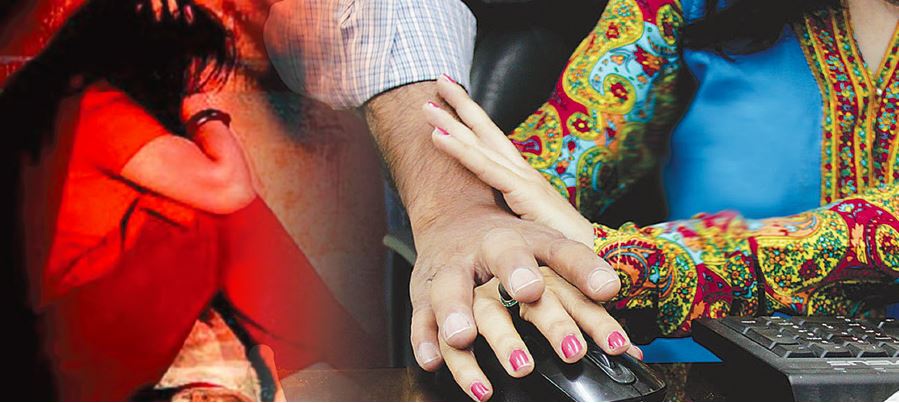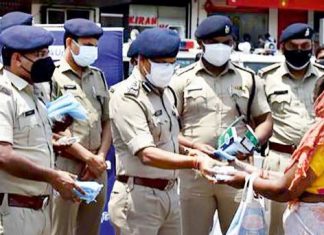 MHA has created a new Women Safety Division to address issues of women safety comprehensively. This division will deal with all aspects of women safety in coordination with relevant Ministries/Departments and State Governments.
MHA has created a new Women Safety Division to address issues of women safety comprehensively. This division will deal with all aspects of women safety in coordination with relevant Ministries/Departments and State Governments.
Smt. Punya Salila Srivastava, AGMUT Cadre Officer (Joint Cadre of Arunachal Pradesh, Goa, Mizoram and Union Territories) of 1993 batch, has been posted as Joint Secretary to head this Division.
The new division will deal with the following subjects:
i. Crimes against women, SCs and STs
ii. Crimes against children, elderly persons
iii. Anti-trafficking Cell
iv. Matters relating to prison legislation and prison reforms.
v. All schemes under Nirbhaya Fund
vi. Crime and Criminal Tracking & Network System (CCTNS)
vii. National Crime Records Bureau (NCRB)
In order to address offences against women, particularly rape in a holistic and time-bound manner, the division would focus on enhancing the capacity of the existing administrative, investigative, prosecution and judicial machinery, along with appropriate measures for rehabilitation of victims and bringing attitudinal changes in the society.
 A national mission for the safety of women, with the participation of stakeholders, Ministries/Departments that would undertake specified actions in a time-bound manner was being considered for quite some time now. The plan included setting up of Special Fast Track Courts (FTCs), strengthening of forensic set-up and building up of a national registry ofsexual offenders, appointment of additional public prosecutors, and providing of appropriate medical and rehabilitation facilities to victims.
A national mission for the safety of women, with the participation of stakeholders, Ministries/Departments that would undertake specified actions in a time-bound manner was being considered for quite some time now. The plan included setting up of Special Fast Track Courts (FTCs), strengthening of forensic set-up and building up of a national registry ofsexual offenders, appointment of additional public prosecutors, and providing of appropriate medical and rehabilitation facilities to victims.
Issues like sensitization of children through appropriate changes in school curriculum, a media campaign for raising awareness, checking proliferation of pornography materials and online contents etc., will also be addressed.
The National Mission for Safety of Women would result in the following:
• Shall enable a credible response to emerging situation of crimes against women, especially minor girls.
- Improve focus on time-bound implementation of measures with tangible impact on women safety.
- Improve coordination with stakeholder departments like Justice, MHA (Ministry of Home Affairs), WCD (Ministry of Women & Child Development), School Education, Health, Diet, Legal Affairs, Information & Broadcasting.
- Improved monitoring at mission level of the time-bound prosecution and investigation of cases of rape and other matters related to women safety.
 The Union Cabinet recently had approved the Ministry of Home Affairs’ proposal for promulgation of Criminal Law (Amendment) Ordinance, 2018 and a number of other measures for effective implementation of the amended provisions of criminal laws aimed at enhancing women safety. The Cabinet had approved the Promulgation of Criminal Law (Amendment) Ordinance, 2018 to amend the Indian Penal Code, 1860 (IPC), the Code of Criminal Procedure, 1973, (Cr.Pc), with consequential amendments in the Protection of Children from Sexual Offences, 2012 (POSCO) and the Indian Evidence Act 1872.
The Union Cabinet recently had approved the Ministry of Home Affairs’ proposal for promulgation of Criminal Law (Amendment) Ordinance, 2018 and a number of other measures for effective implementation of the amended provisions of criminal laws aimed at enhancing women safety. The Cabinet had approved the Promulgation of Criminal Law (Amendment) Ordinance, 2018 to amend the Indian Penal Code, 1860 (IPC), the Code of Criminal Procedure, 1973, (Cr.Pc), with consequential amendments in the Protection of Children from Sexual Offences, 2012 (POSCO) and the Indian Evidence Act 1872.
The said Ordinance was promulgated on April 21, 2018. In order to effectively implement amendments made in criminal law, the Cabinet has also approved the following measures:
a) Setting up of Fast Track Special Courts: A centrally-funded scheme will be launched to setup a fast track special court to exclusively decide rape cases and to strengthen such courts where they already exist. Such a scheme will cover strengthening of the physical infrastructure and manpower for FastTrack Special Courts, etc. in consultation with the High Courts and State Governments concerned.
b) Strengthening of the Prosecution Machinery: On similar lines, the prosecution machinery in States/UTs will be strengthened and a dedicated capacity will be created for effective and timely prosecution of cases for Fast Track Special Courts by sanctioning additional posts for public prosecutors, office infrastructure and supporting manpower.
c) Improving the Quality of Investigation: The rate of conviction in cases of rape depends crucially on the quality of evidence collected by investigating agencies. Adequate provision of special forensic kits for rape cases should be made in all police stations as well as hospitals where such medico-legal cases are handled to improve the quality of forensic evidence and thereby strengthen the case of the prosecution. Dedicated and trained manpower will be provided for investigation of sexual offences in a time-bound manner.
d) Special Forensic Laboratories: One or more specialized forensic laboratory adequately staffed and equipped will be setup in each State/UT to exclusively deal with the forensic needs of rape cases in an efficient and time-bound manner.
 An important aspect in investigation of rape cases concerns tracking of the accused persons and sharing of information with the concerned agencies in this regard. National Crime Records Bureau (NCRB) will maintain database and profile of sexual offenders at the national level and share it with the States/UTs on a regular basis. NCRB data will be used by the police for verification of antecedents for prospective employers and would form part of the CCTNS. The preparatory work for creating this database has commenced.
An important aspect in investigation of rape cases concerns tracking of the accused persons and sharing of information with the concerned agencies in this regard. National Crime Records Bureau (NCRB) will maintain database and profile of sexual offenders at the national level and share it with the States/UTs on a regular basis. NCRB data will be used by the police for verification of antecedents for prospective employers and would form part of the CCTNS. The preparatory work for creating this database has commenced.
The new division in MHA will oversee the implementation of the above measures in a focused way.













